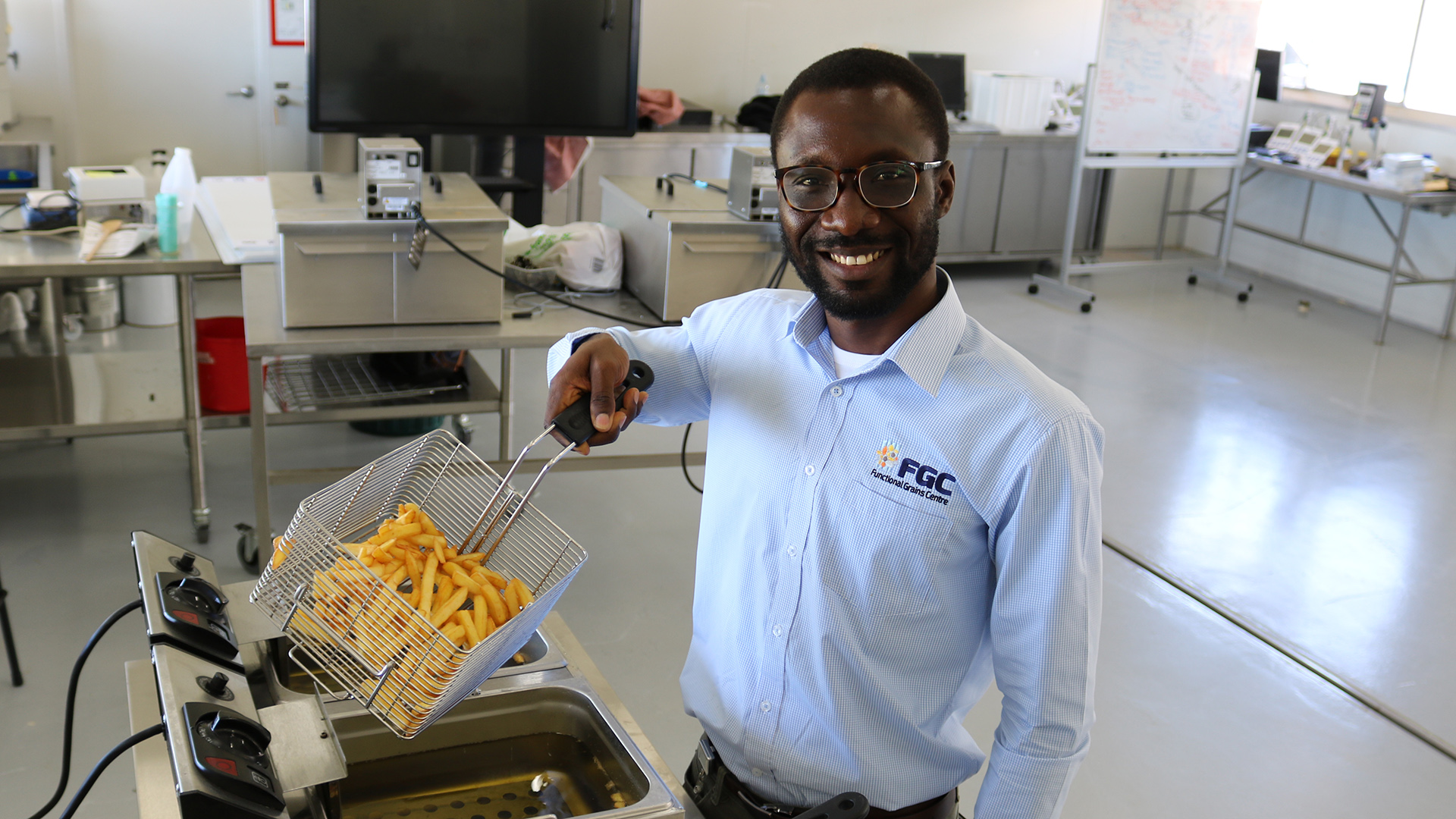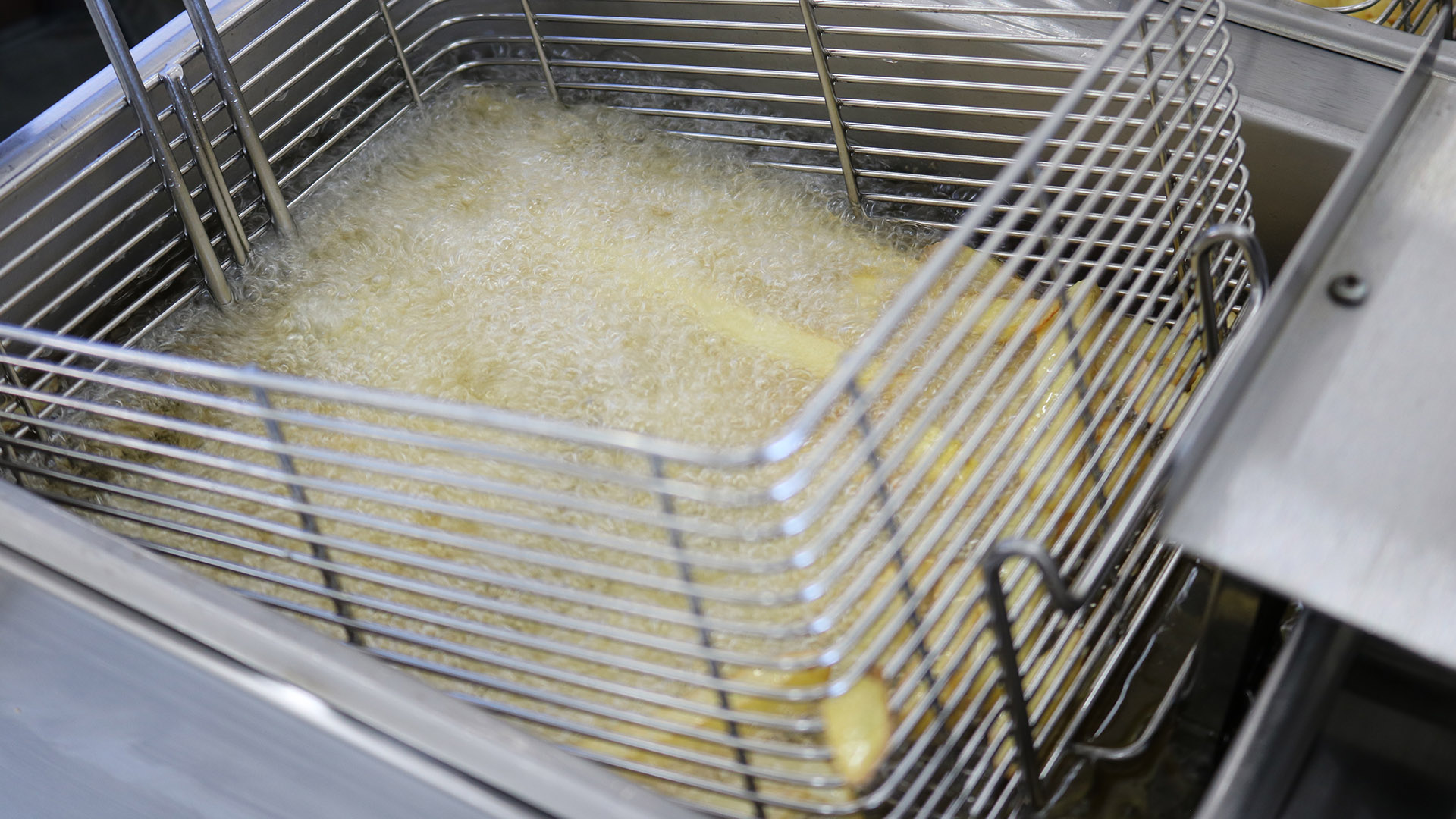Oils ain't oils: How many time can you fry your chips with Canola oil?
Charles Sturt University research comparing Canola oil processed using different techniques has found significant differences in frying life - that is the number of times the oil can be reused.
 The project at the Australian Research Council (ARC) Industrial Transformation Training Centre for Functional Grains examined the quality of canola oil samples used to fry potato chips for 36 to 48 cycles.
The project at the Australian Research Council (ARC) Industrial Transformation Training Centre for Functional Grains examined the quality of canola oil samples used to fry potato chips for 36 to 48 cycles.
Charles Sturt University post doctoral researcher Dr Randy Adjonu presented the research at the recent World Congress on Oils and Fats in Sydney.
“The number of times you use Canola oil for frying impacts on the taste and health properties,” Dr Adjonu said.
“Our research has found the extraction and processing method can significantly impact the frying life of Canola oil, with differences of up to 30 per cent.
“Crude Canola extraction methods include cold pressing, expeller pressing where the seed is heat treated before extraction, and expeller processing followed by solvent extraction.
“It’s not as simple as saying one extraction or processing method is better than another in terms of frying life though, as there were differences between samples extracted using similar techniques.
 “More research is needed to pinpoint how extraction and processing influences frying life, so processors can use this information to improve their product.”
“More research is needed to pinpoint how extraction and processing influences frying life, so processors can use this information to improve their product.”
Dr Adjonu said increasing frying life has the potential to deliver benefits to end users, processors and Canola growers.
“The more times you can use the oil without compromising the quality increases its value for money,” Dr Adjonu said.
“Increasing the frying life is one way that Canola oil processors can add value to their product.
“Much of Australia’s Canola is currently exported for biodiesel production, and increasing the value of oil crushed locally for human consumption is one way we can ‘future proof’ our industry against volatility in the world markets.”
The research has also been published in the journal Foods.
Funded by the Australian Government through the ARC’s Industrial Transformation Training Centres scheme, the FGC is administered by Charles Sturt and is an initiative of the Graham Centre for Agricultural Innovation.
- ARC Industrial Transformation Training Centre for Functional Grains
- News
- Newsletter Archive
- 2020
- Issue 1 2020
- Oils ain't oils: How many time can you fry your chips with Canola oil?


